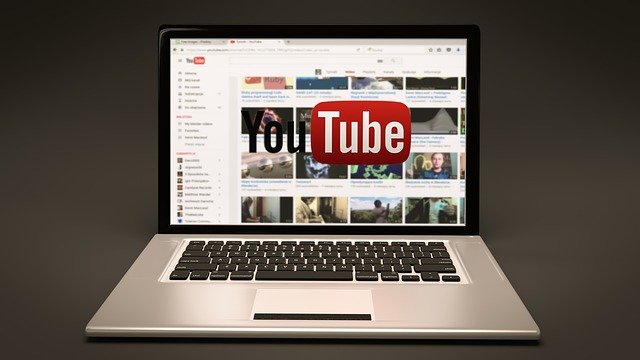Most of us love to have free online platforms available to us for information and entertainment. But have you ever noticed that each person’s online “feed” differs? Learn how your online behaviors are tracked, monitored, studied, and sold in today’s GKIS article. If you worry your family hasn’t covered all the bases in regard to online safety, check out our Screen Safety Essentials Course to learn how to be internet safe for you and your family.
Your Digital Footprint
Let’s cover some basic tech vocabulary to start.
A digital footprint is a data map that is left behind anytime you use the internet. You may be notified that your data is being tracked or it may be happening without your explicit consent.
When you aren’t aware of the data that is being collected, you have a passive digital footprint.[2] This information usually includes your IP address and where and when it came from.
An active digital footprint is created when you upload information about yourself on a website, usually under a profile.[3]
The term cookies refers to a third-party system that collects statistics about your current browsing to tailor your future browsing experience. Cookies remain even after you leave a website.[4] There is usually a pop-up service announcement informing you about the use of cookies when entering a website because of the EU General Data Protection Regulation (GDPR). This legislation was passed in Europe in 2018 to protect personal data and privacy for companies that intend to sell consumer data information to a third party.[6] This legislation requires any website to have a “cookie pop-up” for websites based in Europe or for those that target European citizens. Legislation similar to this is California’s Consumer Privacy Act (CCPA). CCPA is the first legislation in the United States to also protect users from having their data stored by a third party without their consent.[7] To learn more about protective legislation for online content, check out our GKIS article California’s Newest Online Privacy Protections for Kids.
What is surveillance capitalism?
Surveillance capitalism refers to the process of online data collection from cookies that can then be used to create an algorithm for personalized advertising. An algorithm is a specific sequence of content tailored for you that is automatically offered when you use a browser, app, social media, or shopping platform. Creating algorithms is profitable because it allows online businesses to tailor ads for you and offer products they think you’re most likely to buy.
Surveillance capitalism is practiced by companies that profit from knowing your interests and habitual online behaviors. Some corporations don’t sell to you directly. Instead, they collect your data and then sell it to third parties.[4] In this situation, YOU are the product. Companies like Google, Amazon, and Microsoft are required to release statements about their direct data collection. Many of them have also admitted to using third-party data companies.[5]
Dr. Bennett writes about this very phenomenon in her book Screen Time in the Mean Time.[8] She writes:
Websites often have many of these ad trackers surveilling your online activity. The data generated from online tracking has been referred to as digital exhaust because clusters of trackers can follow you from site to site. In addition to information collected from tracking, Facebook buys personal information about its users from one of many services like Experian and Equifax … Not only are adults targeted for ads, but the digital age has ushered in an increasing commercialization of childhood as well. Because of a dramatic increase in personal screen privatization (child Internet use without supervision) and unregulated corporate marketing, an enormous growth in advertising targets children.
Companies are so good at anticipating your interests, many speculate if they are recording your conversations. Find out if this is legal in our GKIS article, “Is Facebook Spying by Hijacking Your Smartphone Mic?”
What can you do to protect your privacy?
- Review terms of service for every website.
- Check privacy settings on browsers.[1]
- Clear your data and search history frequently.
- Filter and block for safe browsing.
- Opt out of cookies for specific websites.
To learn more about cyber safety, Dr. B created the Cybersecurity & Red Flags Supplement to help parents learn about exposure to online risks and how to protect their privacy. Also, if you are a parent concerned about your child accessing the internet, check out the Screen Safety Toolkit. This toolkit guides you to learn how to filter your family’s browsing and offers information about our own favorite third-party party safety system.

I’m the mom psychologist who will help you GetKidsInternetSafe.
Onward to More Awesome Parenting,
Tracy S. Bennett, Ph.D.
Mom, Clinical Psychologist, CSUCI Adjunct Faculty
GetKidsInternetSafe.com
Work Cited
[1] How to search and find your digital footprint: TDS Home. TDS Home | Home, Internet, Phone, TV & DVR Services. (2019, September 12). Retrieved October 26, 2022, from https://blog.tdstelecom.com/security/how-to-search-and-find-your-digital-footprint/
[2] Digital footprints. Family Lives. (n.d.). Retrieved October 26, 2022, from https://www.familylives.org.uk/advice/your-family/online-safety/digital-footprints#:~:text=A%20passive%20footprint%20is%20made,sites%20or%20by%20using%20websites.
[3] Kaspersky. (2022, March 9). What is a digital footprint? and how to protect it from hackers. www.kaspersky.com. Retrieved October 26, 2022, from https://www.kaspersky.com/resource-center/definitions/what-is-a-digital-footprint
[4] Guide to third-party-data: Third-party-data services. Mobilewalla. (n.d.). Retrieved October 26, 2022, from https://www.mobilewalla.com/third-party-data#what-is-third-party-data
[5] Lee, R. (2022, August 10). Can your phone hear your conversations? (yes, but here’s how). Spiralytics. Retrieved October 26, 2022, from https://www.spiralytics.com/blog/mobile-ads-can-phone-hear-conversations-infographic/
[6] What is GDPR, the EU’s new Data Protection Law? GDPR.eu. (2022, May 26). Retrieved November 11, 2022, from https://gdpr.eu/what-is-gdpr/
[7] Daniela. (n.d.). CCPA compliance with Cookiebot CMP. Cookiebot. Retrieved November 11, 2022, from https://www.cookiebot.com/en/ccpa/?utm_source=google&utm_medium=cpc&utm_campaign=usa-generic&utm_device=c&utm_term=do%2Bi%2Bneed%2Ba%2Bcookie%2Bpolicy%2Bon%2Bmy%2Bwebsite%2Busa&utm_content=usa-eng-cookie-policy&gclid=Cj0KCQiA37KbBhDgARIsAIzce15QgUuLTccBBOR_gea1lFedi3w7Id85Ubz06ejheiLsMeEFvnrZgVoaAsUMEALw_wcB
[8] Bennett, T. (2019). Screen time in the meantime: A parenting guide to get kids and teens internet safe. GetKidsInternetSafe Books. https://getkidsinternetsafe.com/parenting-guide/
Photo Credits
Chris Yang: https://unsplash.com/photos/1tnS_BVy9Jk
Maxim Hopman https://unsplash.com/photos/IayKLkmz6g0








